National Museum of Archeology Athens - Archaic Period
The Archaic Period (ca. 750 - 500 BC) saw a variety of changes: The structure of the "polis" (city-state) with an army of hoplites emerged, accompanied by various intellectual achievements such as poetry and drama (A. Snodgrass). Minted coins showed man conquering nature, such as with this lion: You have to approach from the rear, and surprise, you can ride a lion! Yes, obviously, this is exactly how it works ...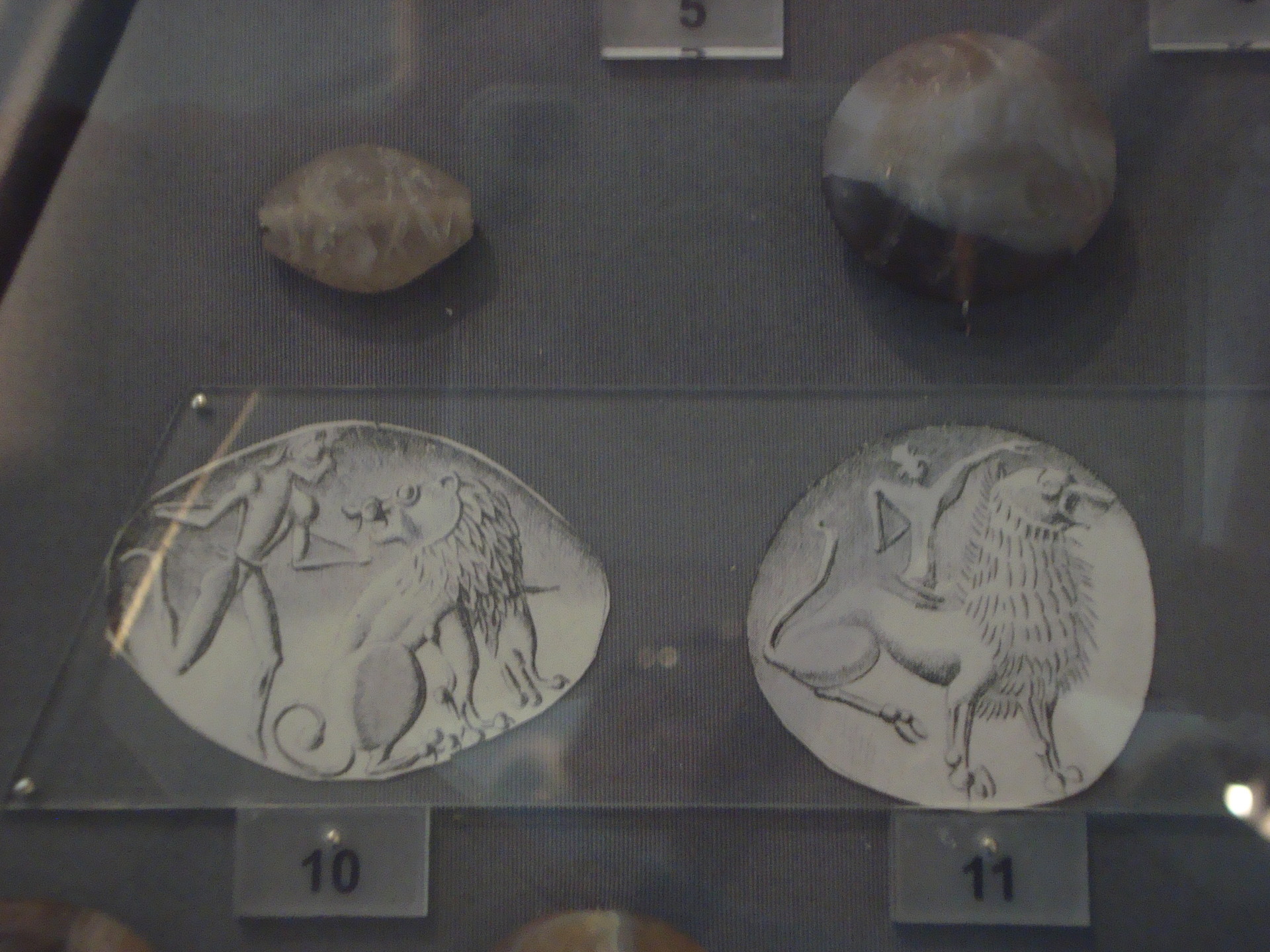
The myth of Hercules probably originated in this time (do you remember the guy who had to do 12 tasks no one else could accomplish?). The topic of man exercising power over nature as civilisation spread was a recurring theme ... metaphors of animals and plants were used to build stories that would be kept alive in oral tradition until an alphabet with letters was invented. Here, Hercules fights the Hydra (multi-headed snake).
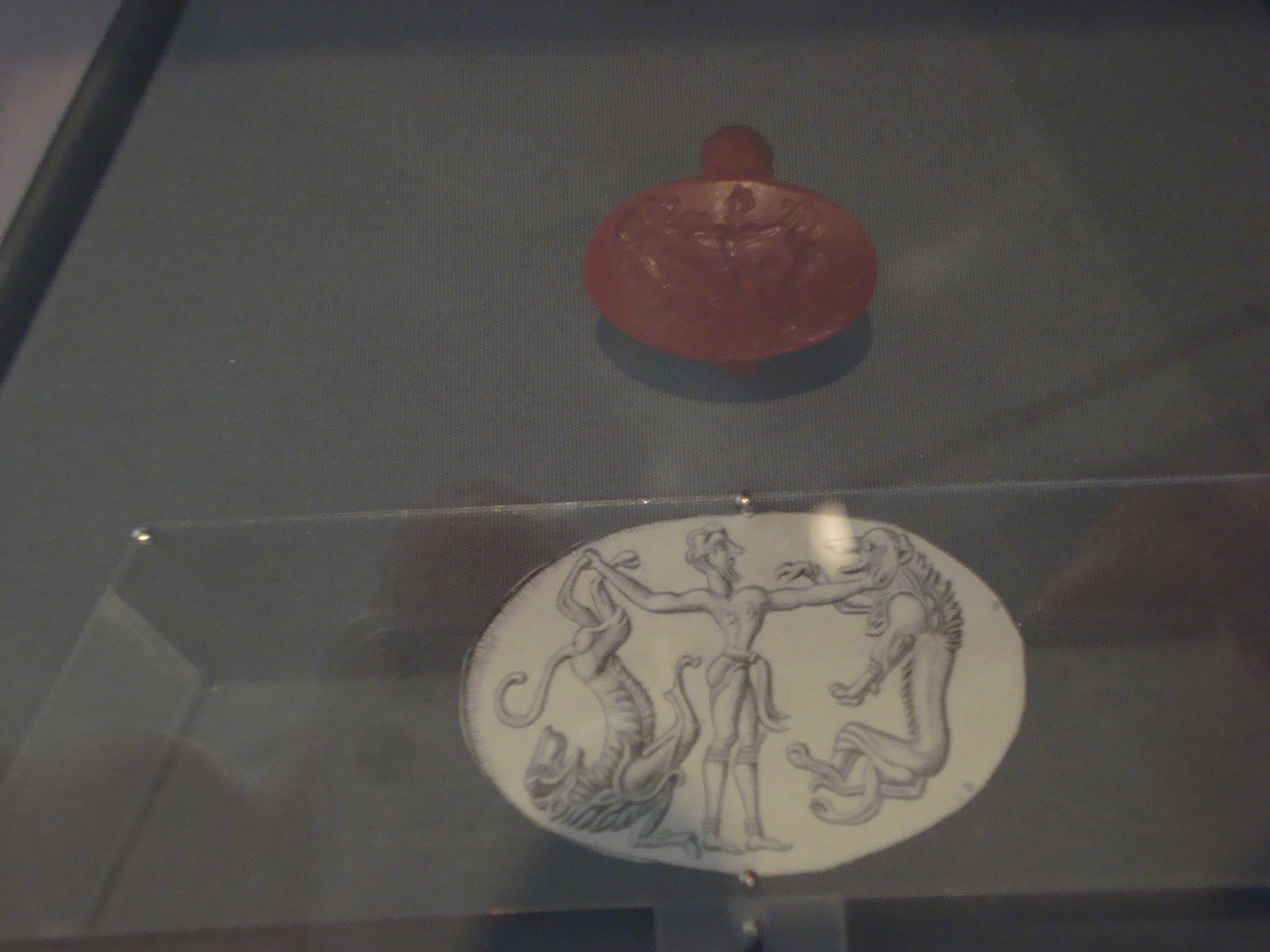
Still, natural motives were used for ornaments, such as this delicate golden flower.
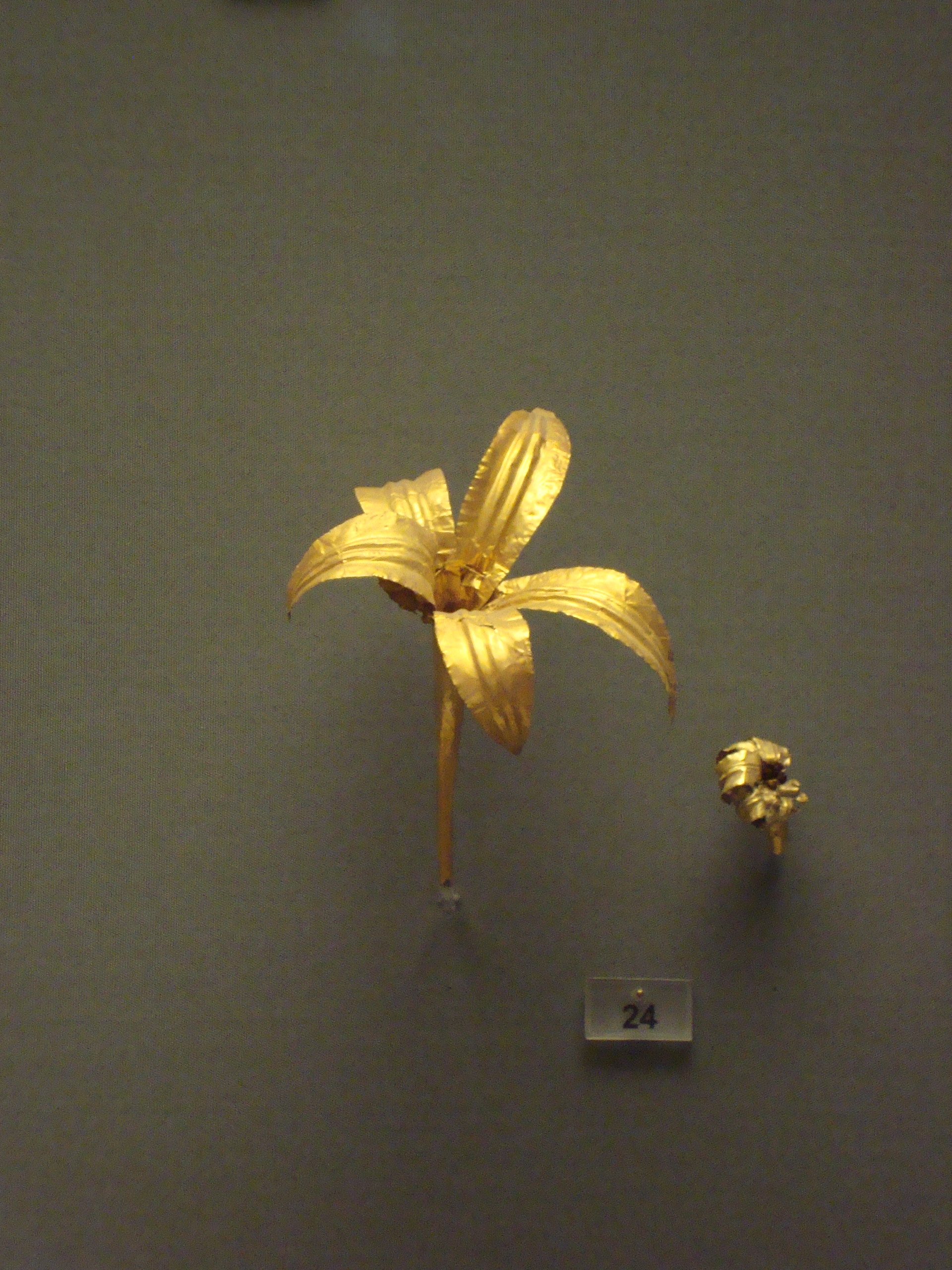
These clay vessels in the shape of boots were obviously not used on one's feet, but instead to store food and / or liquids.
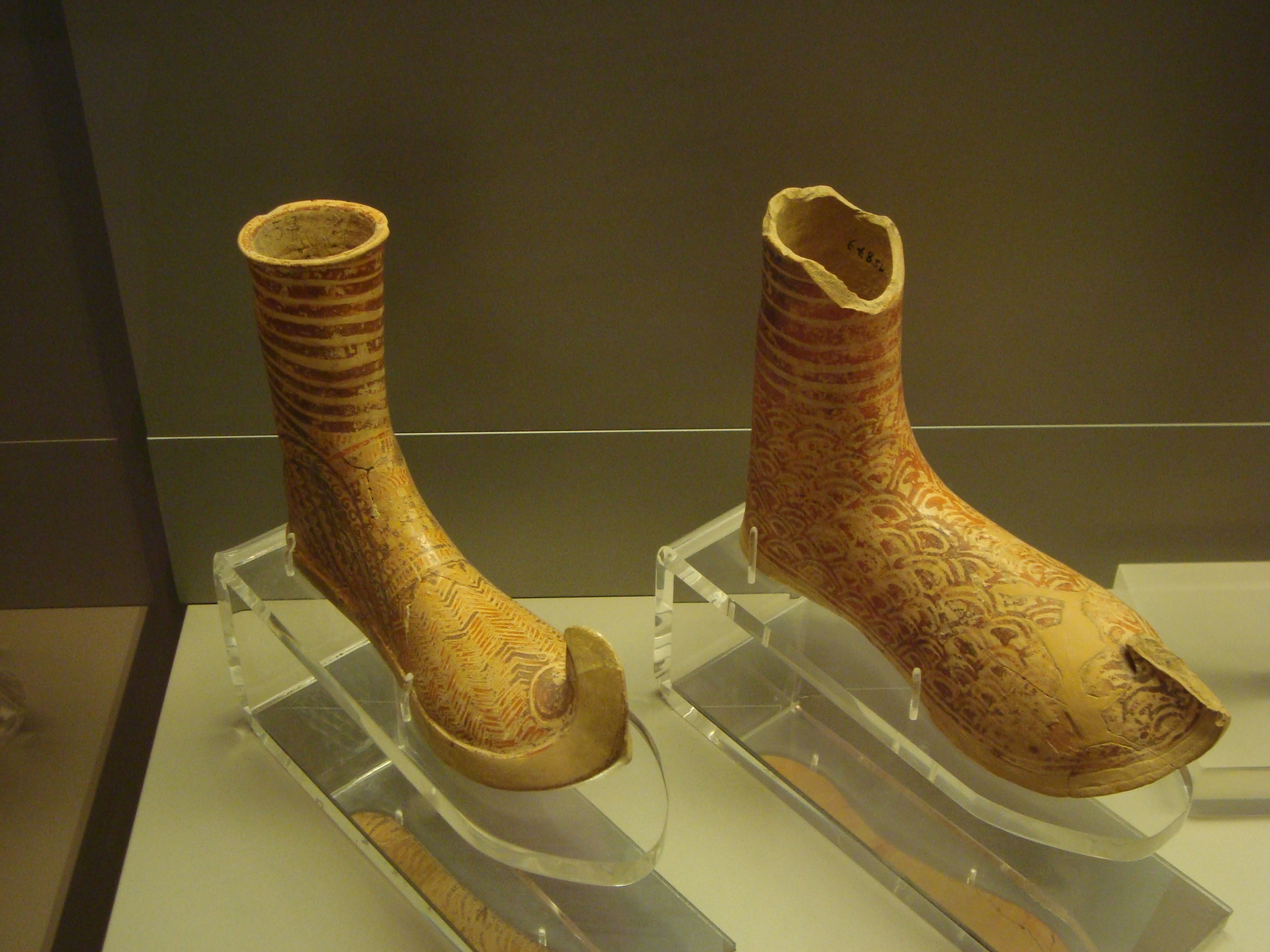
The sphinx is a famous mythological creature with the winged body of a lion and a human head. According to legend, it invents a riddle for everyone that crosses her path, and if the person cannot answer, death is the penalty. If you solve the riddle, you can pass. Paul Shipton turns the story around in one of his children's books on Gryllus, a companion of Odysseus who was transformed into a pig and chose to remain so: He asks the sphinx a question if she could read the words "I don't know" that he had scribbled into the sand. As she reads the words aloud, the earth opens and buries her for saying that she doesn't know. Beaten with your own weapons!
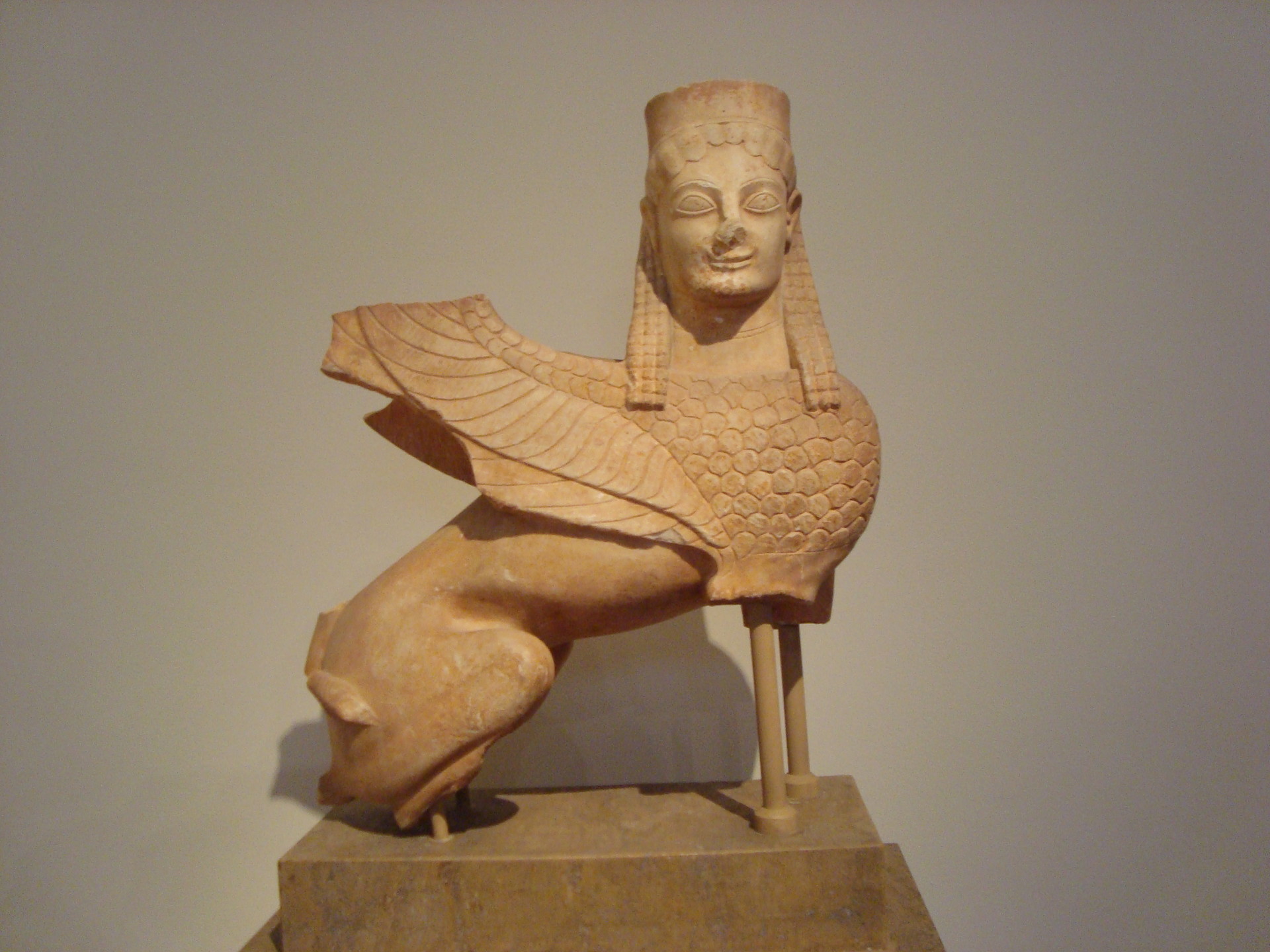
Part 2 will follow ...
Photo gallery
Want to have your own Erasmus blog?
If you are experiencing living abroad, you're an avid traveller or want to promote the city where you live... create your own blog and share your adventures!
I want to create my Erasmus blog! →




















Comments (0 comments)